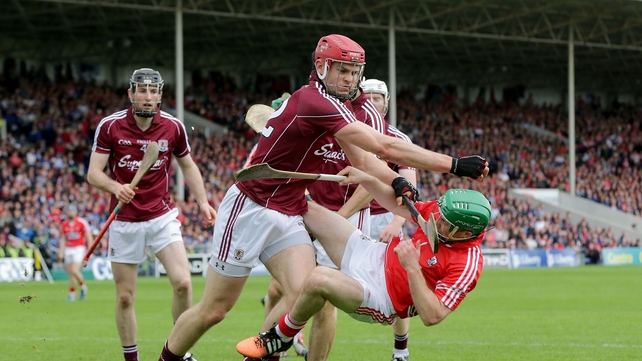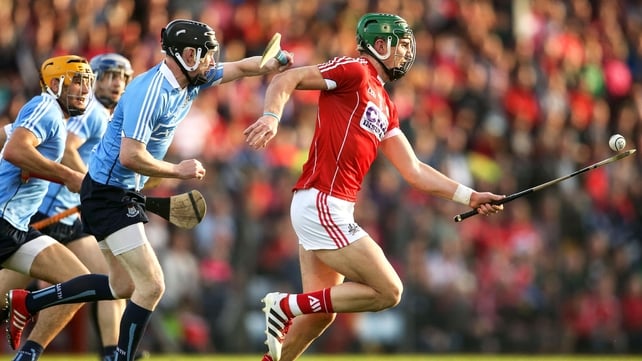A member of the Cork County Board says the county's decline as a hurling power will continue until structures are put in place to address coaching integration and participation levels.
The Cork senior hurlers put behind them a hugely disappointing Munster defeat to Tipperary to edge past 14-man Dublin in the qualifiers at the weekend, but few expect the Rebels to seriously challenge for the Liam MacCarthy title they last claimed a decade ago.
Notwithstanding the fact the Leesiders were within seconds of landing an All-Ireland crown in 2013 and the following year secured a first Munster title in nine years, Cork have lost ground on their main rivals and have shipped heavy defeats in recent seasons.
In 2010, 2011 and 2015, they exited the Championship following 12-point defeats. Ten years ago, Cork led the All-Ireland hurling roll of honour by two, but the county now trails Kilkenny by six titles.
At underage, the record is even more stark. Eighteen years have passed since a Cork U21 side reached the decider, while 32-year-old Munster scrum-half Tomás O’Leary is the county's last All-Ireland winning minor captain. Both underage sides were defeated in their Munster respective Championships on home soil last week.
Coaching officer Kevin O’Donovan has been vocal in his call for reforms.
The Kilmeen club man worked for five years on the Games Development Staff prior to his current role and knows urgent change is required to address the current structures, or lack thereof, in Cork hurling.
Speaking to RTÉ’s Jones’ Road podcast, O’Donovan says that while he is acutely aware of the lack of success in the county, his focus is on possible solutions.
“I have been beating a drum about more long-term issues about our decline over the last decade or so, looking under the bonnet and seeing where the elements are we can put in place to ensure it doesn’t happen in the future,” he said.

“More importantly, looking at participation levels.
“It’s a systems approach, the Cork teams are our shop window. That’s the final product we get out.”
The failure to land ultimate honours is obvious for all to see, but even the lack of silverware at provincial level is a huge cause for concern, and requires action, not just criticism he argues.
“We need to move the discussion on. If people are saying there is no crisis in Cork, that’s delusional. I want to move on from that argument. I want to say where the solutions are for fixing it.”
O’Donovan admits that there is a huge scope for improvement - “I’m on Cork County Board. I’m criticising myself by association because the buck stops with us” – but is involved in a strategic plan which put forward 15 proposals to the County Board.
Progression is slow he admits, but is keen to ensure all proposals and ideas are discussed and evaluated.
One suggestion he i strongly in favour of is a Director of Hurling role.
O’Donovan argues that it would ensure a smoother transition for elite players through to the senior set-up in both codes and also address coaching structures in light of dwindling participation levels.
“[a Director of Hurling] would help the integration of underage county teams and strike the balance between producing senior player and underage success.
“Until you have one person overseeing a programme, you can’t expect it all to link and fit into little pieces of the jigsaw.

“What I would do is have a Director of Hurling and I’d have a head coach with each team and the head coach is responsible for the coaching model or syllabus.
“Without getting too wishy-washy, we still want to win, but the vision would be there to produce this 21, 22-year-old who is ready to deliver at inter-county level.
“Until you put individuals in position to oversee that programme, I think you are depending too much on the U17 manager being good friends with the minor manager, being good friends with the U21 manager.
“That’s a lot of ifs in my book.”
O’Donovan says that the County Board has looked at other successful models, such as Dublin (urban) and Kerry football (rural) and says that while aspects can be gleaned from both, they need to make their own mark, however long it takes.
“The next stage is then the floor of the county board. There is no other avenue, you have to put motions into place,” he says.
“It’s slow. It’s not going to be today or tomorrow we’re going to fix it.”
Jones’ Road is also available here on iTunes

